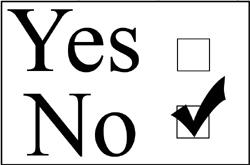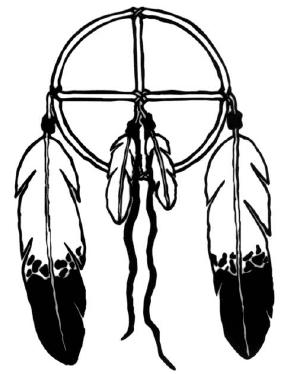By Vanessa Overbeck

Proposittion 68 & 70
By Vanessa Overbeck
PROPOSITION 68 NON-TRIBAL COMMERCIAL GAMBLING EXPANSION.TRIBAL GAMING COMPACT AMENDMENTS.REVENUES, TAX EXEMPTIONS. INITIATIVECONSTITUTIONAL AMENDMENT AND STATUTE.
PROPOSITION 70 TRIBAL GAMING COMPACTS. EXCLUSIVE GAMINGRIGHTS. CONTRIBUTIONS TO STATE. INITIATIVECONSTITUTIONAL AMENDMENT AND STATUTE.
I was initially tempted to write this article from the sole perspective of a Lakota Sioux woman, with outrage and indignation at the audacity of California lawmakers. This is how I reacted to the disdainful and condescending television ads for Proposition 68. But my American Indian heritage, though a large part of my character, is not the totality of me. I am also a citizen of the United States. And just as I have had to resolve the often two opposing sides of my nature, American Indians and Californians must work together to develop a constructive relationship conducive to the interests of both parties.
Native cultures do not exist in isolation in the 21st century. The fact is that what we, as American Indians, choose to do on our sovereign lands affects our neighbors. But the sovereignty of American Indians must be honored and protected if the United States wants the world to judge it a fair and just nation.
In an effort to address the needs and rights of American Indians and Californians, the law requires tribes to make public all political campaign contributions. This was quite a blow to the sovereignty of California Indians, but as the largest contributor to California political campaigns in 2003, American Indians obviously realize that they must, at least partially, work within the California legal system to achieve their goals. Thus, Californians and American Indians must use the law to find a way to co-exist while respecting each other’s rights and rich contributions to the past, present and future of this state. But Propositions 68 and 70 are contradictory to this effort. They are self-serving propositions that will only hurt California residents and negatively impact the state’s relationships with American Indians.
Proposition 68 requires all California tribes with casino style gambling to pay 25 percent of revenues to the state or slot machines will be allowed at racetracks and card clubs. In other words, if even a single tribe resists the state’s intrusion, then California will give away their monopoly on gambling.
Proposition 68 should be rejected outright on pure principle as it is just another instance of the U.S. government telling American Indians, “Do this, or else!” Let’s break this cycle of disrespect and repression by recognizing this sham of legislation for what it truly is: an attempt by California card club and racetrack owners to expand their interests near residential neighborhoods and schools. Let’s face it: They’re counting on one of 43 gaming tribes rejecting this proposal. And as a proud people with a history of defying the authority of the U.S. government, I’d say that this is an excellent bet.
Vote no on Proposition 68 and send a clear message to card club and racetrack owners that we will not stand by and allow them to disrespect one of the most profound contributors to American culture, nor do we want their corruption near our homes and schools.
As for Proposition 70, like Proposition 68, it truly only addresses one side of the issue. It does require California gaming tribes to pay 8.84 percent (the corporate tax rate) of gambling revenues to the state, but it fails to provide an auditing vehicle. This means that the state cannot audit the tribe to verify its actual corporate income. This protects the sovereignty of California Indians by limiting the interference of the state, but it also prevents Californians from knowing whether they are getting a fair deal.
Considering the often violent and repressive history of relations between the government and Native Americans over the past 200 years, we should build this new relationship on a foundation of honesty and respect, on both sides.
Furthermore, Proposition 70 neglects to address the environmental impact of casino operations on surrounding communities, such as noise and traffic congestion. We have a right to our independence and self-sufficiency, but not at the expense of our neighbors. Proposition 70 is not a good foundation upon which to build future relations between Californians and American Indians and it is not the right way to conduct business.
Voting no on Proposition 68 and 70 also preserves compacts negotiated by Gov. Schwarzenegger that are a better deal for the gaming tribes and California taxpayers. The compacts preserve tribes’ monopoly on casino style gambling while requiring that they make larger contributions to the state. Gaming tribes must also abide by environmental, labor relations, and building safety constraints.
These compacts are a credit to new beginnings between tribal and government relations and should be supported by a no vote on Proposition 68 and 70.







